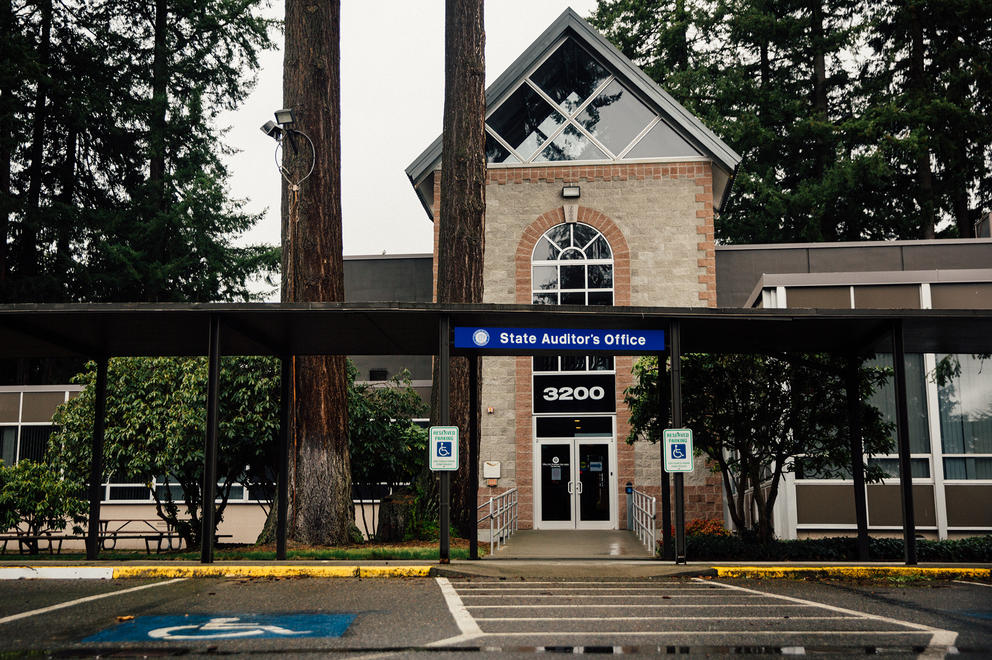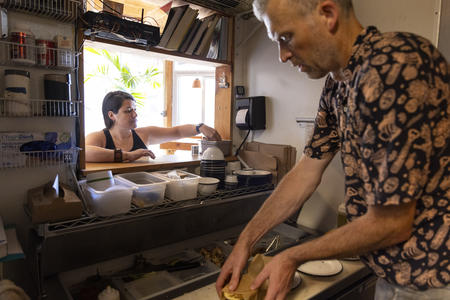The Office of the Washington State Auditor on June 6 released its review of how state agencies spent federal aid between July 2022 and June 2023. That report detailed 86 findings against 11 agencies for failing to comply with federal grant rules or fully account for spending.
“That is the most we’ve ever written,” said Sadie Armijo, director of State Audit and Special Investigations. “We had 70 [findings] last year and obviously it’s creeping up.”
Findings reflect a variety of problems, from missed background checks on contractors to deficiencies in how agencies enforced eligibility for pandemic economic relief programs.
Auditors flagged about $1.17 billion as questioned costs that lacked adequate accounting to verify it followed spending rules. Armijo said the state spent about $29 billion in federal aid during the audit period for fiscal year 2023 — down from a pandemic high of $37 billion, but still far above the $18 billion pre-pandemic average.
This story is a part of Cascade PBS’s WA Recovery Watch, an investigative project tracking federal dollars in Washington state.
State auditors must separately review the federally backed programs at any agency or local government that spends at least $750,000 in federal aid in a year. Armijo explained that the auditors assess each program based on the spending rules and criteria established by the federal programs providing the money.
“We want to make sure ... you have the right controls in place over your program,” she said. “That really helps us to ensure that all public funds are being spent properly.”
Half of this year’s findings involved repeat spending or tracking problems that auditors had identified at those agencies in previous reports. Armijo emphasized that auditors must re-audit those programs each year, compounding the pandemic-related accounting backlogs.
“It just makes the workload massive,” she said, adding, “We really, really believe there are some areas where they could just do some simple things. Some of the things that we report on are pretty easy to fix.”
As federal pandemic aid has flowed from state agencies to local governments or nonprofit social service partners, many agencies have struggled to track how those partner organizations have distributed or spent the money. Agencies drew a number of findings over failures to document that “subrecipient” spending to ensure they also follow federal rules.
More than half of the questioned dollars came from state spending of Coronavirus State and Local Fiscal Recovery Funds, flexible dollars distributed as part of the American Rescue Plan. In the audit cycle, state agencies spent about $1.9 billion of that money.
The state Department of Social and Health Services received 12 findings in this year’s report and more than $312 million in questioned costs — mostly for insufficient monitoring of how subrecipients verified eligibility for the Immigrant Relief Fund.
“We concur that we should have strengthened our internal controls to have reasonably determined the subrecipient only disbursed grant funds to eligible applicants,” DSHS responded in the report. “[But] the Department does not concur with the questioned costs. The Department used the funds to assist Washington workers/families who were affected by the COVID-19 pandemic but were unable to access federal stimulus programs and other social supports due to their immigration status. Repayment of these funds would only hinder the state’s ability to provide critical services to our clients.”
Auditors also issued a repeat finding against the state’s Office of Financial Management over $300 million in fiscal recovery funds that the Legislature transferred to pay for transportation work. The report states OFM has not detailed those expenses to help auditors ensure the work qualifies for that funding.
OFM responded that all of the funding qualified as “government service,” which is an eligible use.
“The Office disagrees that the total amount of lost revenue transferred to the transportation accounts should be considered questioned costs because the auditors were unable to design tests for compliance,” the OFM response states.
Auditors also issued a finding over a drop in the average proportion of state funding that went to K-12 education, which would violate requirements on federal Education Stabilization Funds. OFM argued it had later updated its data to comply with that standard.
The state Department of Commerce drew 12 findings over its use of fiscal recovery funds and its administration of the Emergency Rental Assistance program. Auditors outlined shortcomings with tracking subrecipient spending, documenting and reporting, unauthorized advance payments to subrecipient partners and compliance with spending deadlines.
“We determined [Commerce] did not request and review adequate supporting documentation before paying subrecipients,” auditors wrote, “and it did not perform adequate fiscal monitoring to ensure that funds advanced to subrecipients were disbursed to eligible households and for allowable activities.”
Commerce responded that it did allow some advance payments to local service partners to reduce cash flow issues as part of distributing the emergency relief. Spokesperson Penny Thomas wrote in an email that Commerce has bolstered its documentation requirements and hired additional staff to help ensure compliance.
“Looking forward with these lessons learned and actions taken in the pandemic,” she wrote, “Commerce is working to standardize and strengthen its internal controls related to risk assessments, sub-recipient monitoring, and invoice documentation.”
Auditors also flagged about $75 million in questioned costs that Commerce paid out to help people with utility costs. The report states Commerce did not collect and review details on the households that received assistance, and some payments fell outside the allowed time period. Thomas noted legislators had approved an additional year to spend the funds that did not match the federal rules.
“Maintaining utility services during the crises was an essential tool in sustaining and protecting the health and welfare of our businesses and citizens,” the Commerce response states, adding, “The Department will also work with utility providers to obtain detailed supporting documentation to reconcile all arrearages paid to determine and verify the amounts expended.”
The Department of Children, Youth and Families received 16 findings, the most of any agency this year. Auditors flagged a combined $473 million in questioned spending, largely based on repeat issues with program compliance and documentation on child care and Temporary Assistance for Needy Families programs.
“[DCYF] continues to balance verification requirements with providing timely benefit decisions to support family access to high quality child care,” DCYF wrote in one finding response. “Additionally, the Department is being intentional in updating our learning resources for eligibility staff. Information from this and future audits will be used to update training.”
Find tools and resources in Cascade PBS’s Follow the Funds guide to track down federal recovery spending in your community.
The Employment Security Department, the Department of Health, the Health Care Authority, the Housing Finance Commission, the Office of the Superintendent of Public Instruction, the Department of Transportation and the University of Washington also drew findings.
State agencies will have to work with their federal grant partners to address concerns identified in the latest audit. Armijo said federal officials may request additional documentation, or in rare cases could request repayment of money that did not comply with program guidelines.
“We just have not seen [that] in the coronavirus relief funds or any of the pandemic funding ... yet,” she said. “But sometimes it takes years, so we don't really know.”
The auditor’s office noted that five federal programs, including the State Pandemic Electronic Benefit Transfer Administrative Costs Grant and Veterans State Nursing Home Care, did not see any findings across this audit period.
Armijo acknowledged that state agencies had made important updates since federal funding surged during the pandemic. Many agencies continue to face staffing shortages as they adapt to audit concerns.
SAO officials said the 2023 state audit did not yet include billions in anticipated federal dollars from either the Infrastructure Investment and Jobs Act or the Inflation Reduction Act.
“In the next year, some of the pandemic funding is going to decline a little bit more, but we also have the influx of the infrastructure money,” Armijo said. “We don’t really know what that’s going to look like in ’24 moving forward. ... There’s still a lot of federal money.”
Clarification: This story has been updated to clarify its characterization of questioned costs.
Get the latest investigative news
A newsletter for resources, data and behind-the-scenes insight into investigative efforts.







